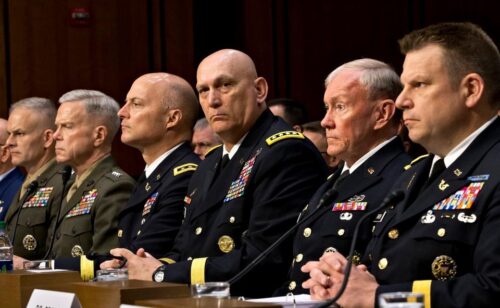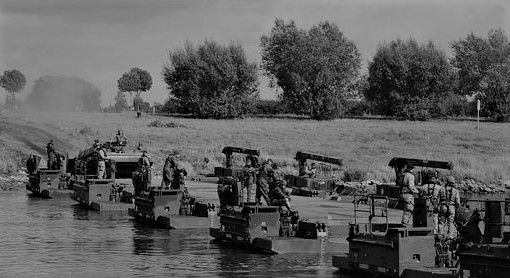By Carl Conetta, 21 Dec 2015

There’s ample global storm and stress these days, and the cries of alarm will get worse over the next months as we approach the 2016 election. It’s an old story – to paraphrase: “With America in retreat overseas, exceptional threats and crises are looming. Decisive action is needed, but the White House has gone wobbly. And our armed forces – overtaxed and cut to the bone – are unready.”
This trope has gained prominence three times in the past 40 years, always to great effect. Its resurgence depends on the intersection of three conditions: 1. A troubled Democratic presidency, suffering a decline in popularity (initially for domestic reasons); 2. A period of reduced defense spending; and 3. A pending and hotly-contested presidential election. Carter faced it as did Clinton (in 1998-2000). Now Obama faces it. (A fuller analysis of this dynamic can be found in my 2014 report, Something in the Air: ‘Isolationism,’ Defense Spending, and the US Public Mood. A relevant excerpt is here. Both links are PDFs.)
Hawks are always ready to peddle the “America weak and endangered” trope, but it doesn’t gain traction absent the three conditions mentioned above. The dynamic works like this: Given a weakened Presidency, military leaders feel freer to exit the White House narrative and argue their institutional interests unalloyed: “Boost our budget, the nation is at risk!” This feeds the partisan mill and begins moving public debate and opinion rightward. (For a chart covering 50 years of US public opinion on Pentagon spending see Gallup’s Military and National Defense page.)
With an eye on the polls and sensitive to the drop in presidential popularity, some congressional Democrats follow suit, seeking to protect their right flank. The White House, too, tries to get ahead of the curve, adopting a more bellicose stance and pumping up the Pentagon budget. (Indeed, the administration itself many splinter, with some luminaries jumping ship. Rather than stemming the tide, the hawkish turn among Democrats creates the impression of a new hawkish “consensus.” Many point to firebrands like McCain and Lindsey Graham, but it’s the Democrats in retreat that precipitate the stampede to the Right.
Obama has differed from Clinton and Carter in one respect: He’s accommodated the Pentagon from the start, hoping to avoid the dilemma that snared his predecessors. He boosted the DoD budget above Bush levels and kept it there for three years. As sequestration loomed, he argued against it and also allowed DoD and the Chiefs to lash out. Yes, he partially withdrew troops from Iraq and Afghanistan, but slowly – and not before an Afghan surge. As troops came home, drone strikes increased and the administration enacted a “muscular” shift to Asia, an AirSea Battle strategy, and new military initiatives all across Africa.
But the gambit didn’t work. As soon as sequestration bit into the Pentagon and the President stumbled domestically (it was the economy, stupid), the hawks jumped. Now the President is left scampering after his hawkish critics. Whatever he says – bombs, troops, billions – they just say “more.” It’s not a pretty sight, nor one likely to win public confidence.
But aren’t today’s global crises real? ISIS, Russia in Ukraine, Chinese “assertiveness”? Well, yes to a degree, but certainly not exceptional, see: Our World Gone Wild? What *is* special about today are the three conditions mentioned at the top. But these reflect domestic political dynamics, not global strategic ones – and they’re shaping both popular perceptions and attitudes.




